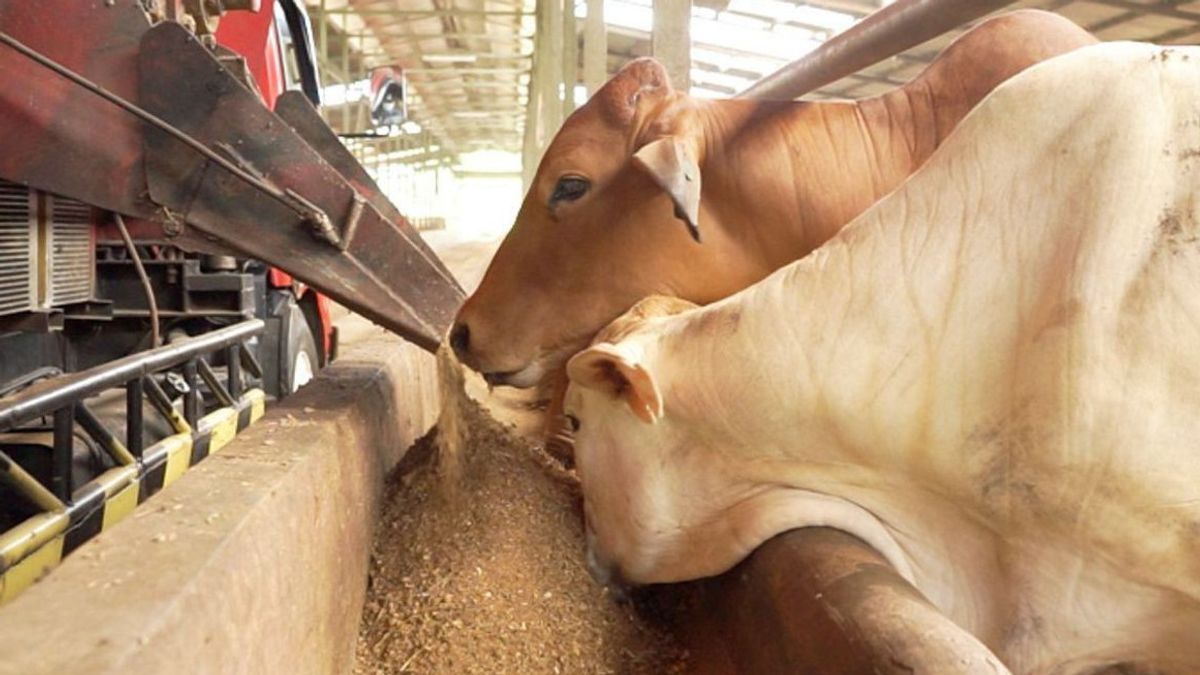YOGYAKARTA - Sacrificial worship is a form of worship carried out during Eid al-Adha, precisely on tasyrik days that take place from 10 to 13 Dzulhijjah. So what is the meaning of sacrifice in Islamic teachings?
Ethymologically, the word "sacrement" comes from Arabic qariba yaqrabu qurban, qurbanan, qirbanan, which means "close" (Ibn Manzhur, 1992:1:662; Munawir, 1984:1185). This term contains the meaning of getting closer to Allah by carrying out part of His orders.
In daily use, the word "sacrement" in religious terms is known as udhiyah, a plural form of dhahiyyah, which comes from the word dhaha (which means time d bettera).
This term refers to the slaughter of animals carried out at the time of dctiona, from 10 to 13 Dzulhijjah. From this practice, the term Eid al-Adha was born. Let's see the meaning of sacrifice in Islamic teachings and verses of the Qur'an related to this.
Based on this explanation, it can be concluded that the meaning of qurban or udhiyah in the context of sharia is slaughtering animals as a form of worship to Allah, which is carried out on Eid al-Adha and for three days tasyrik, namely 11th, 12th, and 13th Dzulhijjah.
vertically, sacrificial worship is a means to get closer to Allah and obtain His pleasure. Meanwhile, socially, sacrifices play a role in making the poor happy on Eid al-Adha.
Therefore, the meat from the sacrifice should be distributed to those in need. Even though it is allowed to save a small part for families who sacrifice, the top priority is still given to the poor.
God bless you:
Let's talk about it. Let's talk about it, let's talk about it.
"Then part of it and (some more) give it to be eaten by people who are miserable again." (QS. al-Hajj, 22:28)
Udhiyyah or sacrificial worship is one of the noble Islamic symbols and is the most important form of obedience. This worship reflects sincerity in worship of Allah alone, as well as a tangible manifestation of compliance with all His orders and prohibitions. Therefore, every Muslim who is given the benefit of sustenance is recommended to carry out sacrifices.
From Abu Hurairahtipallahu 'Anhu, Rasulullah Shallallahu 'Alaihi Wasallam is called, You can't believe it'
"Whoever has the field, while he does not sacrifice, do not come close to our prayer room." (HR. Ahmad, Ibnu Majah and al-Hakim, but this hadith mauquf).
The slaughter of sacrificial animals began when the sun rose as high as a spear, namely after the implementation of Eid al-Adha prayers on 10 Dzulhijjah, and ended at sunset on 13 Dzulhijjah, which lasted for three days. Meanwhile, sacrificial meat is distributed in three parts, although it does not have to be divided evenly. The three parts include: (1) for the poor, (2) to be given as gifts, and (3) to be consumed with their own families in reasonable quantities.
It should be noted that the part given as a gift and the one consumed alone should not exceed a third of the total sacrificial meat. However, giving more to the poor is considered more important.
The sacrificial service has a legal status as the sunnah of muakad, which is a highly recommended sunnah. Prophet Muhammad shallallhu alaihi wasallam has always performed sacrificial worship since his first funeral. The view that sacrifice is the sunnah of muakad was emphasized by Imam Malik and Imam al-Syafii.
Meanwhile, Imam Abu Hanifah believes that sacrifices are mandatory for those who have the ability and are not on a trip (Ibnu Rusyd al-Hafid: t.t.: 1/314).
The slaughter of sacrificial animals is one of the Sunnahs of the Prophet which is full of meaning and virtue. This was reinforced by a number of hadiths of the Prophet salallhu alaihi wasallam which explained the noble values behind the worship.
You can't help it, you can't help it, you can't help it, you can't help it, you can't help it, you can't help it, you can't help it, you can't help it, you can't help it, you can't help it, you can't help it, you can't.
Aisyah said from Rasulullah salallhu alaihi wasallam that he said, 'There is no practice carried out by Adam's child (humans) on Eid al-Adha which is more loved by Allah than slaughtering animals. Because the animal will come on the day of the world with its horns, fur, and nails of its feet. The animal's blood will reach the side of God before overflowing into the ground. Therefore, widen your soul to do so. (Hadits Hasan, Al-Tirmidzi's history: 1413 and Ib Majah: 3117)
According to Zain al-Arab, the most important worship on Eid al-Adha is the slaughter of sacrificial animals solely for Allah. This is because on the Day of Resurrection, the animals sacrificed will come to those who slaughter them in perfect condition, without any shortage of one part, and each part of their bodies will be a source of reward for that person.
Metaphoretically, the animal is described as a vehicle that will be used to cross the shirath bridge. This is a form of reward and a sign that Allah blesss His servants who perform the sacrifice.
SEE ALSO:
narrated from Abu Hurairah, Rasulullah salall Holhu alaihi wasallam berbda, Who has the ability to sacrifice, but he doesn't want to sacrifice, so occasionally he doesn't come near our place of prayer. (HR. Ahmad and Ibnu Majah).
Such is the review of the meaning of sacrifice in Islam which is important for every Muslim to understand. Also read the requirements for people to sacrifice Eid al-Adha.
Stay up to date with the latest domestic and other overseas news on VOI. We present the latest and updated information nationally and internationally.
The English, Chinese, Japanese, Arabic, and French versions are automatically generated by the AI. So there may still be inaccuracies in translating, please always see Indonesian as our main language. (system supported by DigitalSiber.id)
















